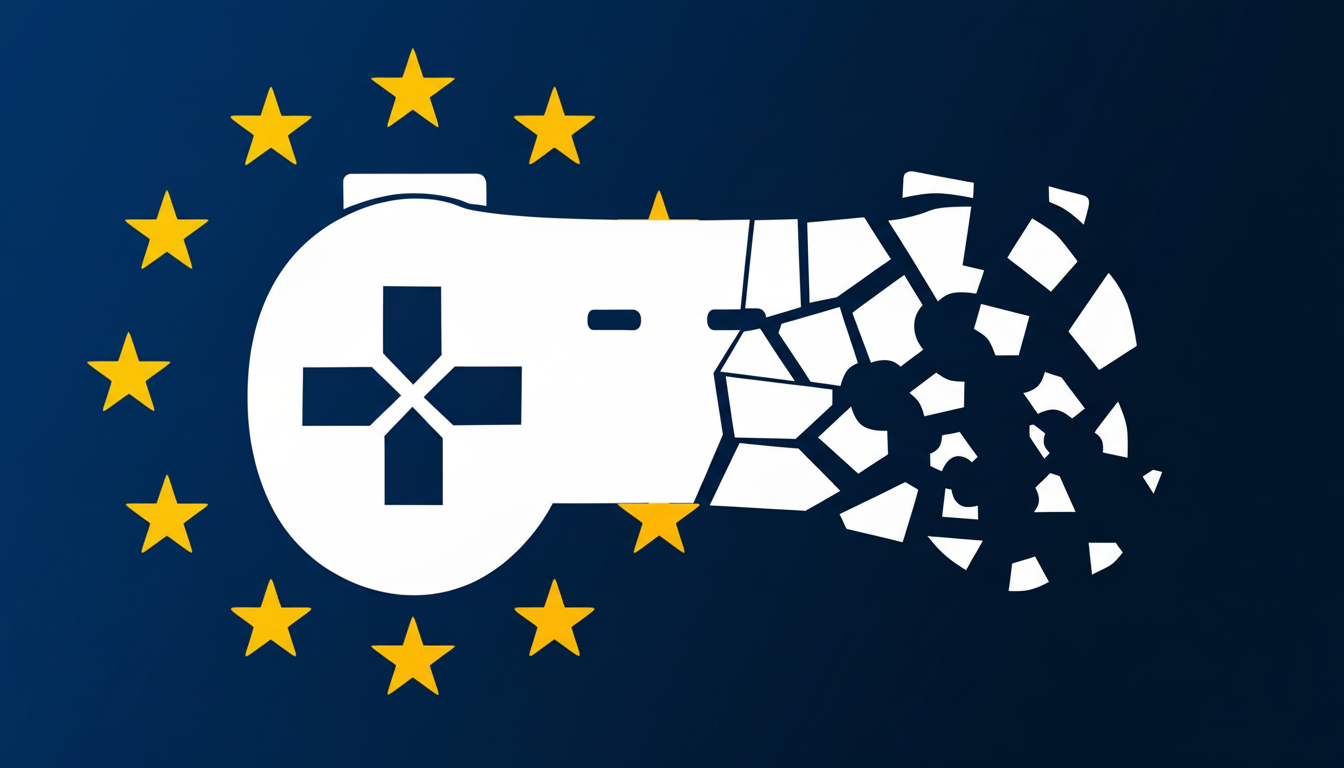A grassroots push to ensure that purchased video games remain playable even after being discontinued by their publishers is on the cusp of a formal review in Brussels.
According to the Stop Killing Games campaign, it has “overcome the vast majority of the obstacles” necessary for the European Commission’s action, putting the effort on track for a rare citizen-directed confrontation with how live-service games terminate.

What the Campaign Demands
The campaign was abruptly launched by video maker Ross Scott after Ubisoft dropped support for The Crew. It claims that publishers should not be allowed to “switch off” titles they have sold.
They make the following request: when online services close, studios must secure a continuing path to play, such as:
- An offline mode
- A “farewell patch”
- Authorized server emulation
This would not force companies to fund them indefinitely.
Deactivation is portrayed as amounting to an infringement on customer assumptions as well as a dire impact on cultural preservation. Examples of unnecessary deactivation include:
- Knockout City
- Rumbleverse
- Babylon’s Fall
Furthermore, play is frequently made impossible despite players owning licenses and post-launch spending.
Signatures and Verification Progress
The effort uses the European Citizens’ Initiative, a nearly dormant method that enables citizens to compel the Commission to enact legislation if at least 1 million verified signatures are obtained and minimum standards met in at least seven participating states.
According to organizers, the initiative has received approximately 1.45 million signatures and 689,000 verifications from national personnel, while fifteen states have met their unique requirements.
Germany and France are yet to clear their national thresholds, but campaign trackers assure that the pace of verification seems strong enough to comply with the cutoff.
According to figures published by community moderators and referenced from PC Gamer, barely 3% of signatures might prove to be invalid or out of the EU — that’s significantly less than what would constitute a threat to the total if verification continued at the current speed.
Possible legal hooks and consumer law context
Consumer advocates may find a potential bridge in the new Digital Content and Digital Services Directive from the EU; the DCDSD deems that goods stay in “conformity” for a reasonable time. While it does not explicitly assure post-shutdown playability, groups such as BEUC have argued that durability should relate to digital goods as much as physical ones.
The Commission is also looking to consult its planned Digital Fairness Act, aimed at dark patterns and lock-ins; any scheme that euthanises paid content without customers’ consent might get some scrutiny.

Industry lawyers point out that a potential new rule would need to strike the balance between player rights and legitimate business interests, such as licensing limitations, protection from cheaters, and the costs of farewell patches. But the ECI’s root argument — that an absolute kill switch for the products customers had already paid for seems to be a commercial practice that does not honour the principle of “honesty in the provision of digital content and services” — offers a legal core to a conversation that has mainly played out in some forums and preservation circles.
Why shutdowns clash with player and archival needs
Live-service economics mean that expectations for longevity are out of alignment, because players routinely buy expansions, battle passes, and even cosmetics that can be invalidated by a single server shutdown.
Single-player titles can vanish if they need always-online authentication to operate.
Archivists are concerned that this obliterates cultural records if museums and libraries cannot keep the experience because the code cannot execute without the official servers.
Developers argue that sending offline fallbacks can be technically complex, particularly in games that were built on server-side reasoning. However, there are examples of dignified retirement — a last patch offering LAN or bots, or launching server binaries to a limited-license preservation body — making it as much a policy question as a technology one.
What may happen next in the EU and beyond
If the ECI’s signatures are validated, the Commission will have to consult with the organizers, respond formally, and, perhaps, hold a European Parliament hearing.
While there is no new law on the horizon, the complaint forces the executive of the EU to establish a policy — potentially the most decisive rule for existing consumer rules applied to end-of-life digital goods — or to suggest a focused responsibility for post-shutdown playability.
Meanwhile, parallel growth is occurring outside the EU. The United Kingdom Parliament petition, “Prohibit publishers from irreversibly disabling video games after they have been sold,” has attained over 189,000 signatures, well above the mark at which Britain will have to debate.
In the United States, organizers have been unimpressed with enforcement attempts for years. Yet, states are currently updating the cooling-off laws, a beguiling sign for enforcement in the future.
How supporters can help verification succeed
Supporters can take one more immediate step, but it is verification, not fresh signatures: Signatories in the EU are being asked to complete identity checks with their national authorities.
If the initiative does pass the finish line, it will bring a longstanding grievance in gaming to the Union’s front door — and maybe also settle how digital ownership operates when the lights switch off.

